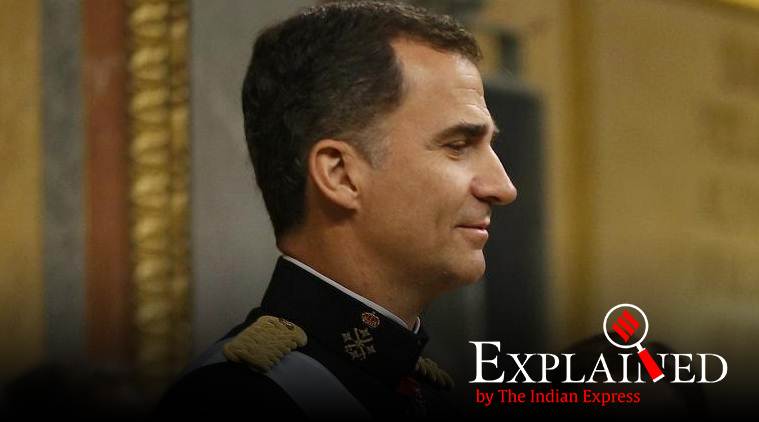Explained: Why Spain’s king has renounced inheritance from his father
Felipe VI decided to distance himself from his father after recent news reports said that when Juan Carlos I was king, he allegedly received $100 million from Saudi Arabia in 2007.
 Felipe VI has said in a statement that he was told about the Lucum fund last year, and told his father he did not want to be a beneficiary. He also said that he was not aware of the Zagatka fund.
Felipe VI has said in a statement that he was told about the Lucum fund last year, and told his father he did not want to be a beneficiary. He also said that he was not aware of the Zagatka fund.
Spain’s King Felipe VI renounced inheritance from his father, the emeritus King Juan Carlos I, amid allegations of financial impropriety involving Swiss bank accounts and donations from Saudi Arabia.
The ex-monarch Juan Carlos I, who abdicated in 2014, has also been stripped of his annual palace allowance of EUR 1,94,232, the Spanish daily El País reported.
Why has Spain’s king renounced his inheritance?
Felipe VI decided to distance himself from his father after recent news reports said that when Juan Carlos I was king, he allegedly received $100 million from Saudi Arabia in 2007. Anti-corruption prosecutors in Switzerland are investigating the payment as suspected kickbacks for a contract to build a high-speed rail link to Mecca, the El País report said.
A report in the Switzerland-based La Tribune de Geneve newspaper said that Juan Carlos I later gave $65 million to Corinna zu Sayn-Wittgenstein, a German businesswoman close to him. These payments, made in 2012, are being probed in Spain. The close relationship between the two was among the reasons that led to Juan Carlos I’s abdication in 2014.
Reports in Britain’s Telegraph newspaper also said that Felipe VI, the current monarch, appeared as a beneficiary of two financial funds– Zagatka and Lucum– with Lucum being the fund allegedly used in receiving the Saudi payments.
Felipe VI has said in a statement that he was told about the Lucum fund last year, and told his father he did not want to be a beneficiary. He also said that he was not aware of the Zagatka fund.
The official statement made on Sunday referred to a previous proclamation made in 2014 by Felipe VI to the Spanish legislature, in which the then newly inaugurated monarch had said, “The Crown must […] preserve its prestige and show integrity, honesty and transparency.”
Controversies involving the former king
The former King Juan Carlos I, who was generally held in high regard for protecting Spain’s nascent democracy after the death of dictator Francisco Franco in 1975, saw his popularity decline due to a raft of scandals involving the royal family.
A controversial elephant-hunting trip to Africa in 2012, a time when Spain was reeling under economic distress, especially hurt his image.
Don’t miss from Explained | Coronavirus and dental care: Why you should hope not to get a toothache
His daughter, Princess Cristina and her husband Iñaki Urdangarin were embroiled in controversy in 2016 after Urdangarin was convicted of embezzling around € 6.2 million of public funds, and sent to jail. The princess lost her “Duchess of Palma” title during the inquiry, but was herself acquitted of wrongdoing.
Juan Carlos I abdicated in 2014, giving the throne to Felipe, who had a cleaner image.






































